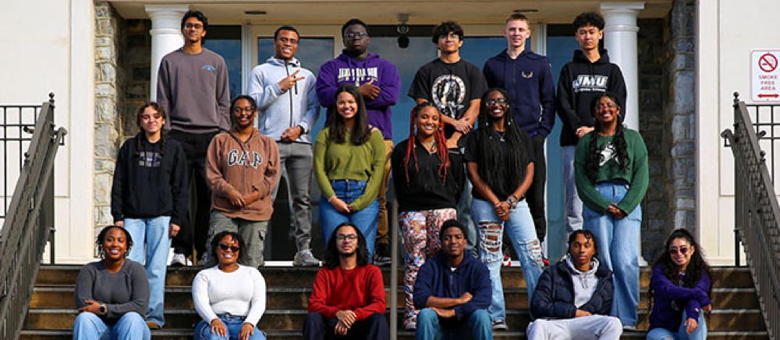
The Haynes Scholars Residential Learning Community
The Haynes Scholars Program is an academic residential learning community run by the JMU Department of Mathematics and Statistics. The Haynes Scholars program is for incoming first-year STEM majors at JMU who feel that they can contribute to and benefit from the goals of the program. All students are welcome to apply. Haynes Scholars live together in Hoffman Hall, take math classes in cohorts, participate in a first-year exploratory research project, and make student and faculty connections that help them become leaders in their own departments.
Are you a high school student or prospective JMU student interested in applying to the Haynes Scholars program? Contact us and ask questions
Applications for the 2026-27 cohort of Haynes Scholars will be available in Spring 2026 on the Residential Learning Communities page. This is a residential learning community application; please note that you can choose your own roommate from outside the program, or request to be paired with another Haynes Scholar, or choose to have a random roommate, as you prefer :)

Haynes Scholars participate in exploratory undergraduate research projects in mathematics in the JMU Experimental Mathematics Lab, and have opportunities to connect with STEM faculty and campus facilities early on. Students in the program have a chance to use 3D printing and other digital fabrication technologies, tour labs and research facilities in STEM departments, and get acquainted with opportunities for research and scholarship in their own departments.
The Haynes Scholars Program is centered around the JMU university values:
- Academic Quality: We are dedicated to exemplary learning experiences because they are the essence of our mission.
- Community: We thrive when we collaborate, respect and serve others, and appreciate our interconnectedness.
- Diversity: We strive to be an inclusive community that values the richness of all individuals and perspectives.
- Innovation: We believe that purposeful creativity through our collaborative processes leads to knowledge creation, learning and excellence.
- Integrity: We pursue ethical reasoning because it is essential to meaningful citizenship.
- Student Focus: We provide experiences that challenge and support students.
The Haynes Learning Community is named after Dr. Euphemia Lofton Haynes, who in 1943 became the first Black woman to earn a Ph.D. in mathematics.
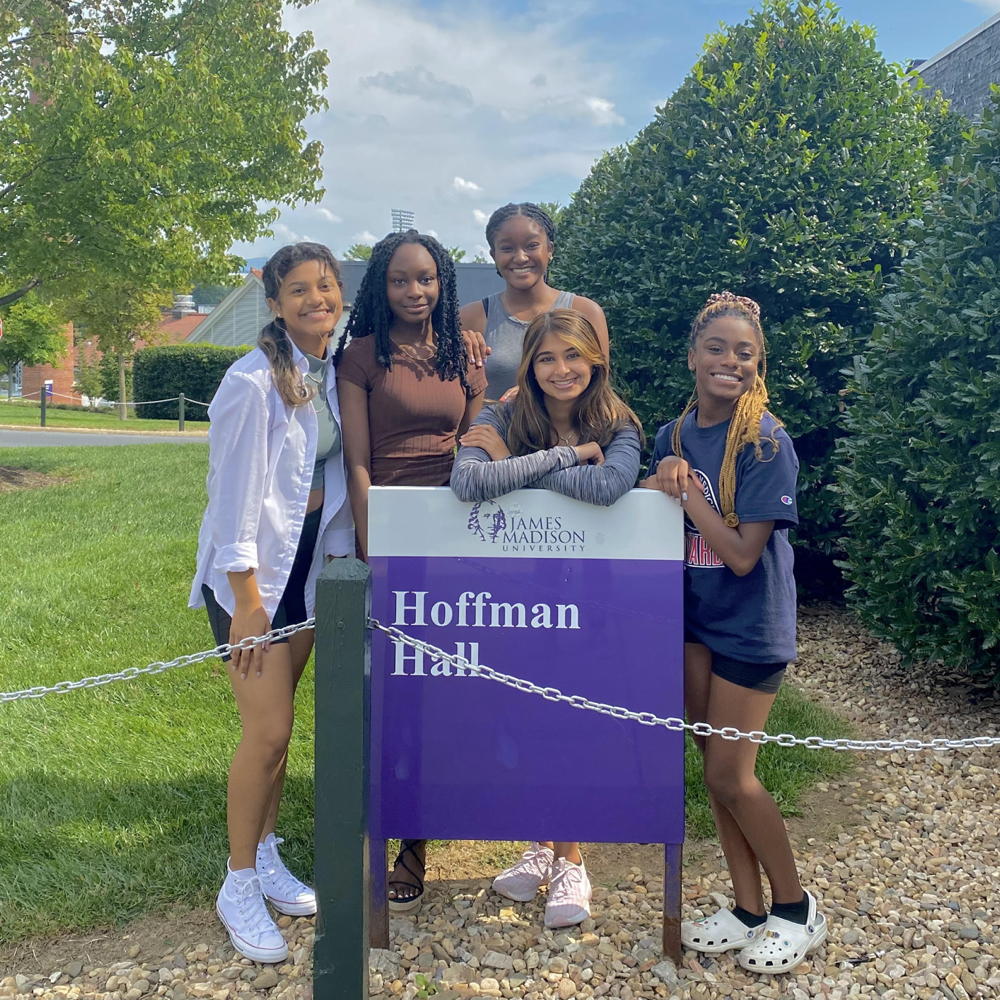
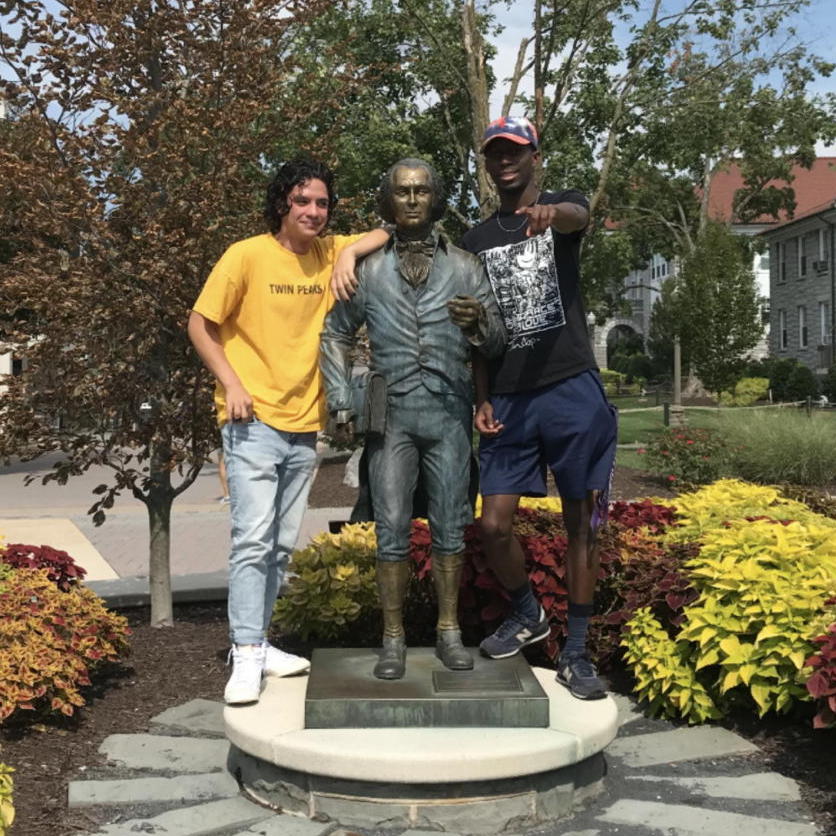
Undergraduate research in the Haynes Scholars program is supported by the JMU Department of Mathematics and Statistics, the JMU College of Science and Mathematics, the JMU Experimental Mathematics Lab, the JMU Office of Creative Propulsion, the JMU 3SPACE Classroom, and the Makeries at JMU Rose and Carrier Libraries.
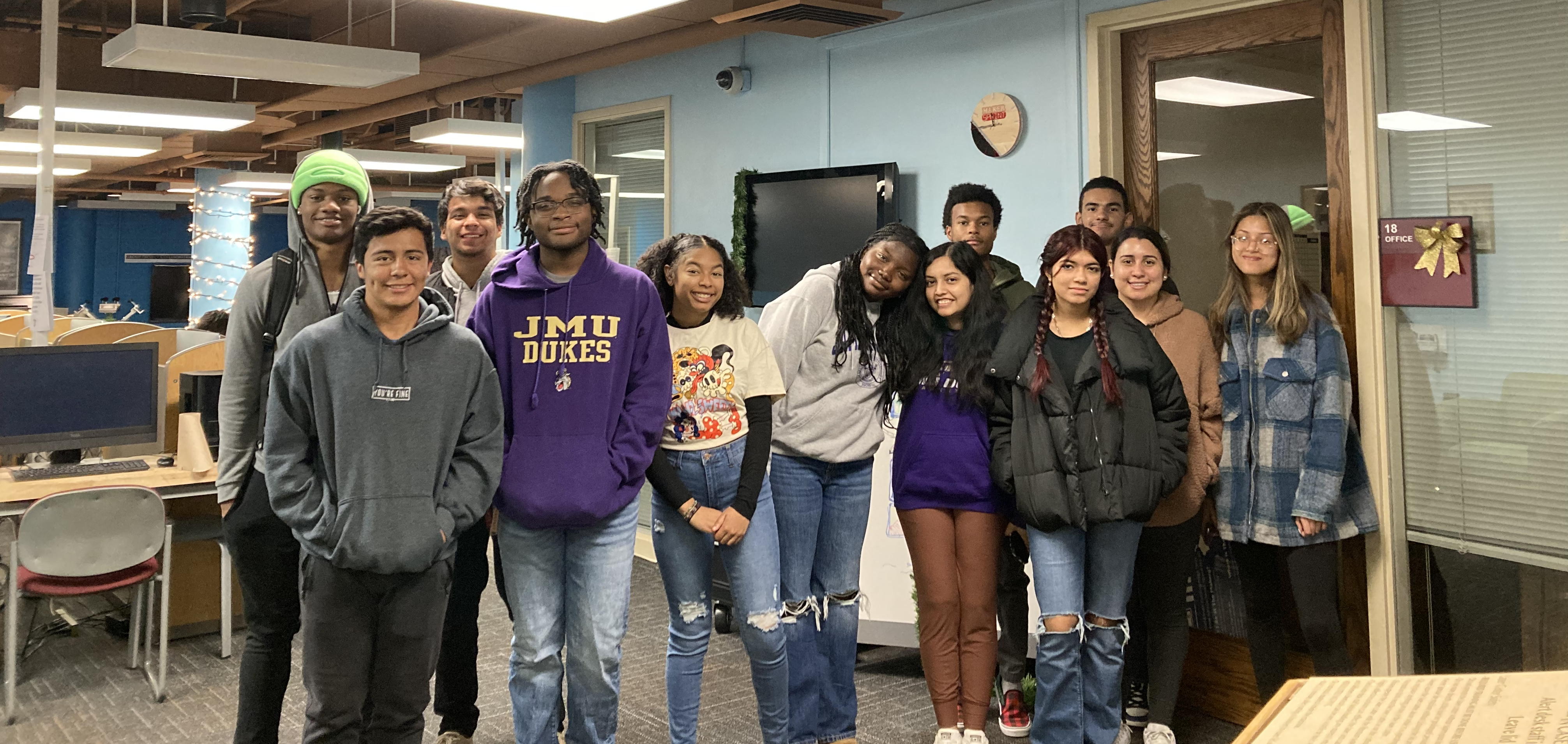
Applying to be a Haynes Scholar
Prospective STEM students are encouraged to apply to join the Haynes community for the 2023-24 academic year, including majors from Physics, Biology, Chemistry, Geology, Engineering, Computer Science, Mathematics, Statistics, or other STEM-related disciplines. Please note that students of all mathematical levels are encouraged to apply! Most Haynes Scholars will take either MATH 231-232 or MATH 235-236 in their first year, according to their JMU placement scores.
All incoming students are welcome to apply to be Haynes Scholars, and selection is without regard to a person’s race, color, national origin, or other protected characteristic. Students applying to be Haynes Scholars will be asked to describe how they will personally contribute to and benefit from the Goals of the Haynes Scholars Program:
- Celebrate and value all forms of community cultural wealth and backgrounds at JMU.
- Bring JMU STEM majors from CSM and CISE together in a residential and academic environment where all people feel they belong.
- Provide opportunities for success in STEM mathematics courses, and hands-on experiences with undergraduate research in mathematics.
For more information about Residential Learning Communities in general, and to apply to be a Haynes Scholar, visit the JMU Residence Life website.
Please note that you CAN choose your own roommate in this RLC, either from outside or inside the Haynes Scholars program.
Benefits of being part of the new group of Haynes Scholars and why you should apply:
- You’ll live together in Hoffman Hall with the rest of the Haynes Scholars, and form a community that starts with your first day on campus, and provides a support network for your entire time at JMU.
- You’ll meet and work with former Haynes students from various majors who will be involved in the program as mentors, tutors, and advisors to the incoming Haynes students.
- You will get to take your required Calculus classes together with the rest of the other Haynes Scholars, in the same sections of either MATH 231-232 or MATH 235-236. You’ll have a study group from the first day of class, right in your dorm!
- During the year, you will get to take a special course just for Haynes Scholars in which you’ll explore early, creative research projects and leadership opportunities.
- As a group, you will take tours of campus and Harrisonburg, traveling together to research conferences and events, and enjoy cookouts and other fun community-building activities throughout the year.
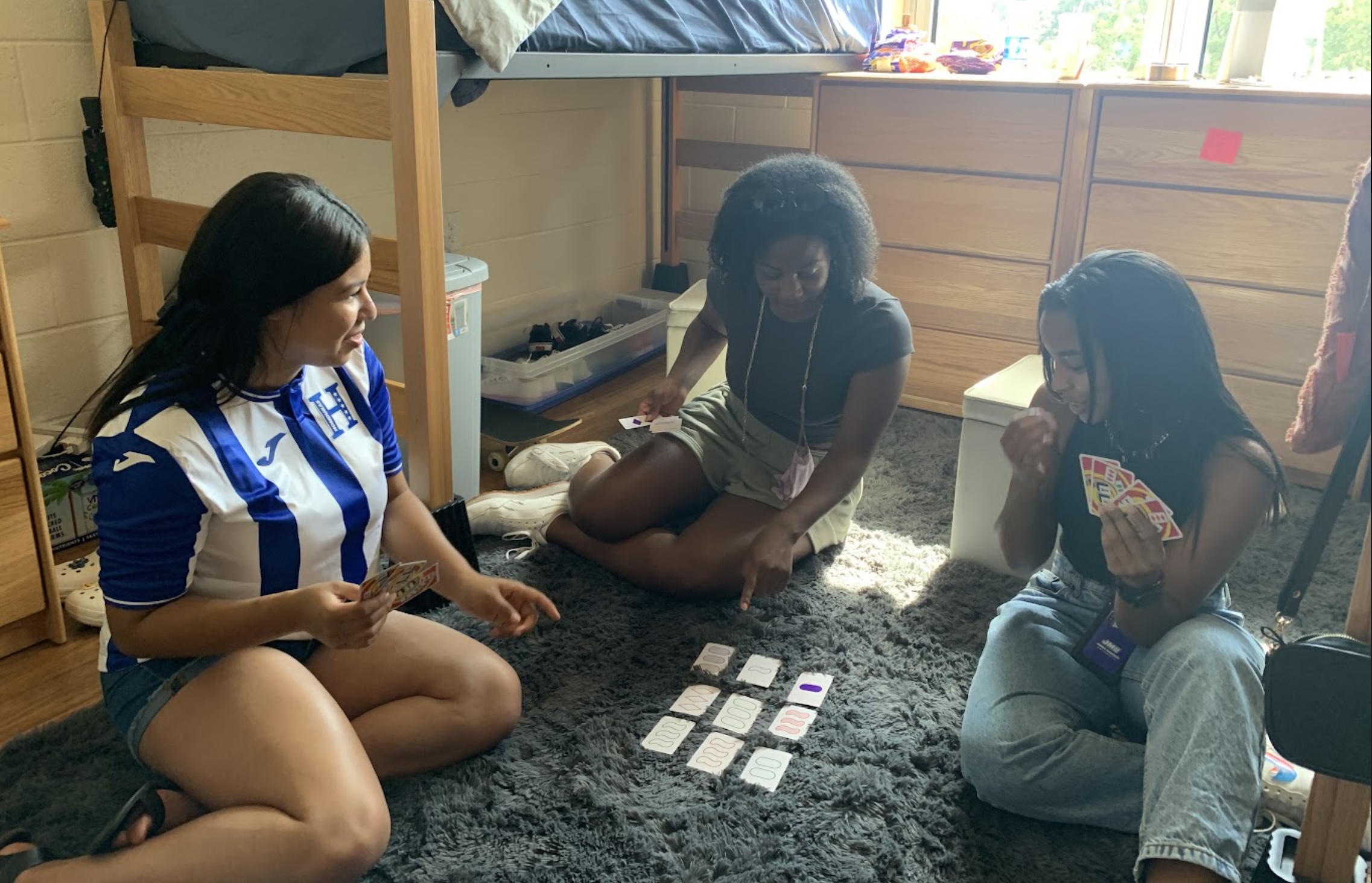

Meet the 2025-26 Haynes Scholars
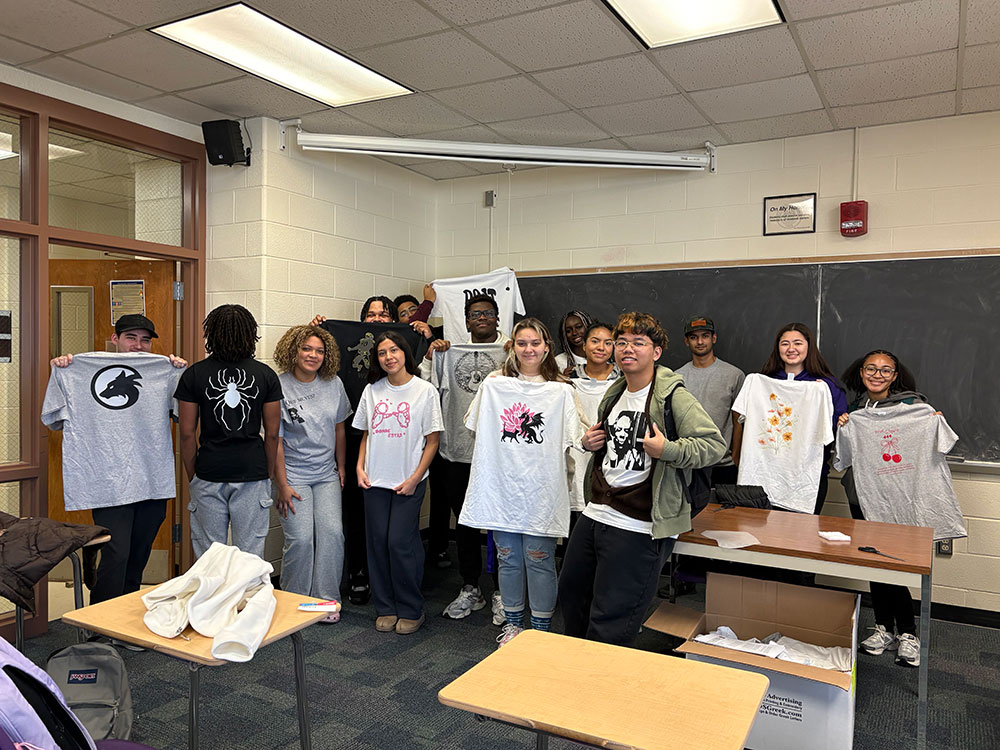
Research Project: TBD
Abstract: TBD
Jaan Amin - Haynes Scholar in Engineering
Nathan Biru - Haynes Scholar in Computer Science
Abby Corado - Haynes Scholar in Psychology
Caden Davis - Haynes Scholar in Computer Science
VIctoria Fawole - Haynes Scholar in Engineering
Tremain Fergerson - Haynes Scholar in Engineering
Elena Lewandowski - Haynes Scholar in Chemistry
Alayiah Mayes - Haynes Scholar in Biophysical Chemistry
Jade Neeley - Haynes Scholar in Chemistry
James Scott - Haynes Scholar in Computer Science
Richard Sun - Haynes Scholar in Engineering
Alexander Szeles - Haynes Scholar in Engineering
JJ Tiago - Haynes Scholar in ISAT
Natalie Torres-Pimentel - Haynes Scholar in Engineering
Makayla Watson - Haynes Scholar in Exploratory/Engineering
Meet the 2024-25 Haynes Scholars
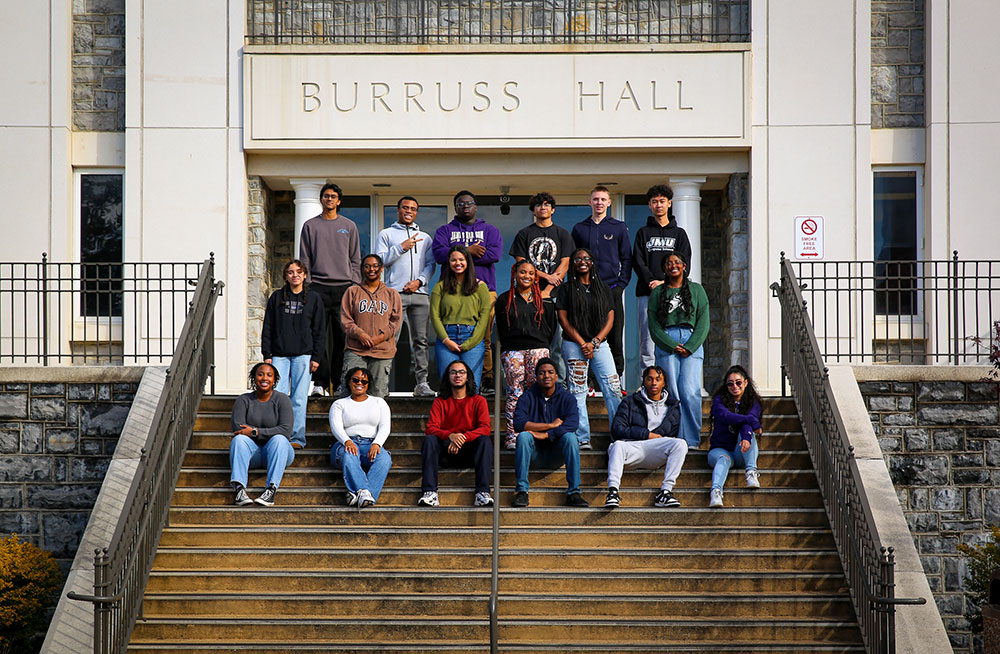
Research Project: Mathematical Modeling of White-nose Syndrome in North American Bats
Abstract: White-nose syndrome (WNS) is an infectious disease that affects hibernating bats in North America. First discovered in New York in 2006, it has spread across most of North America. In less than 20 years, it has wiped out over 90% of at least three species of bats. This academic year, the Haynes Scholars will use mathematical models and computer simulations to study the spread of WNS, the population dynamics of bats, and to evaulate potential control measures.
Chris Ansah - Haynes Scholar in Computer Science
Hayli Campbell - Haynes Scholar in Biology
Genesis Carranza - Haynes Scholar in Biology
Aarmann Choudhry - Haynes Scholar in Engineering
Hermela Gashaw - Haynes Scholar in Engineering
Meklit Gizework - Haynes Scholar in Chemistry
Jovon Grooms - Haynes Scholar in Engineering
Arsenii Herasymov Quantitative - Haynes Scholar in Finance & Mathematics
Chrishanna Johnson - Haynes Scholar in Physics
Destiny Jones - Haynes Scholar in Engineering
Gabrielle King - Haynes Scholar in Biology
Parikshit Parsoya - Haynes Scholar in Physics
Jaci Magee - Haynes Scholar in Biotechnology
Valeria Palacios-Marentes - Haynes Scholar in Chemistry
Aayush Patel - Haynes Scholar in Computer Science
Zion Reynolds - Haynes Scholar in Computer Science & Political Science
Devran Turson - Haynes Scholar in Computer Science
Stephon Woodson - Haynes Scholar in Engineering
Meet the 2023-24 Haynes Scholars
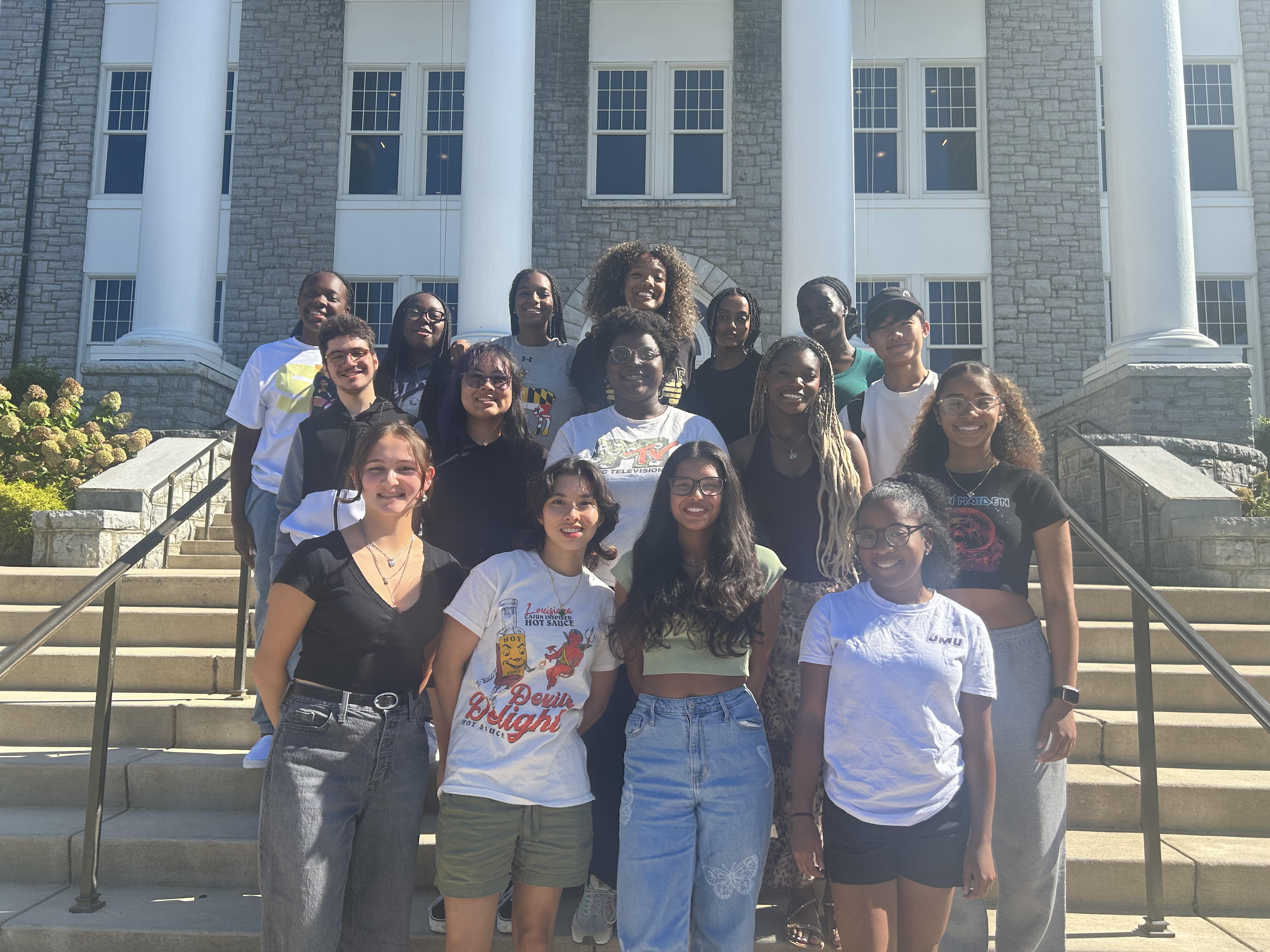
Research Project: Building and exploring a scalable graph network
Abstract: How do companies like Facebook, LinkedIn, Google, or Amazon manage their massive amounts of data? How can they integrate data from various sources while keeping information clear and concise? How can organizations computationally leverage the relationships that exist between users and their data? Graph networks are an intuitive visual tool that help to understand complex relationships in data. They transform the data into an alternative structure simplifies the processing of large data tables and break it up into manageable chunks. The objective of our project is to build a dynamic networking platform that visualizes and analyzes the connections and relationships among students based on the classes they take together. Our data and tech team is broken-up into five groups: front-end, back-end, scaling and automation, dashboard and management, and research and development. Front-end developers design the graphical user interface which is legible, aesthetically pleasing, and inclusive for all users. Backend engineers manage the database systems that store, process, and retrieve the diverse data related to students and their courses. The scaling and automation team investigate leveraging cloud databases to expand our platform while maintaining meaningful connections among members. Dashboards summarize essential information about the members of the network, the network itself, and valuable key metrics, providing user-friendly interfaces that allow individuals to visualize and interact with the data in a beneficial manner. The research and development team use the mathematical graph structure of our network to analyze the connectivity of our system. Our dashboard will be underpinned by both a relational and a graph database.
Kiara Alexander - Haynes Scholar in Kinesiology
Daniel Antunes - Haynes Scholar in Engineering
Erin Bozman - Haynes Scholar in Chemistry
Andrew Chow - Haynes Scholar in Biology
Dichiya Eley - Haynes Scholar in Mathematics
Zoe Harris - Haynes Scholar in Biology
MaKayla Moody - Haynes Scholar in Biology
Paola Moreno - Haynes Scholar in Computer science
Paola Munoz - Haynes Scholar in Computer Science
Rishtika Neopaney - Haynes Scholar in Engineering
Vicki Poku - Haynes Scholar in Computer Science
Arianna Powell - Haynes Scholar in Biology
Trinity Rucker - Haynes Scholar in Biology
Eldana Teklemariam - Haynes Scholar in Engineering
Emily Waters - Haynes Scholar in Computer Science
Atiana Williams - Haynes Scholar in Biology
Nylah Wilson - Haynes Scholar in Geology
Breanna Yeboah - Haynes Scholar in Engineering
Meet the 2022-23 Haynes Scholars
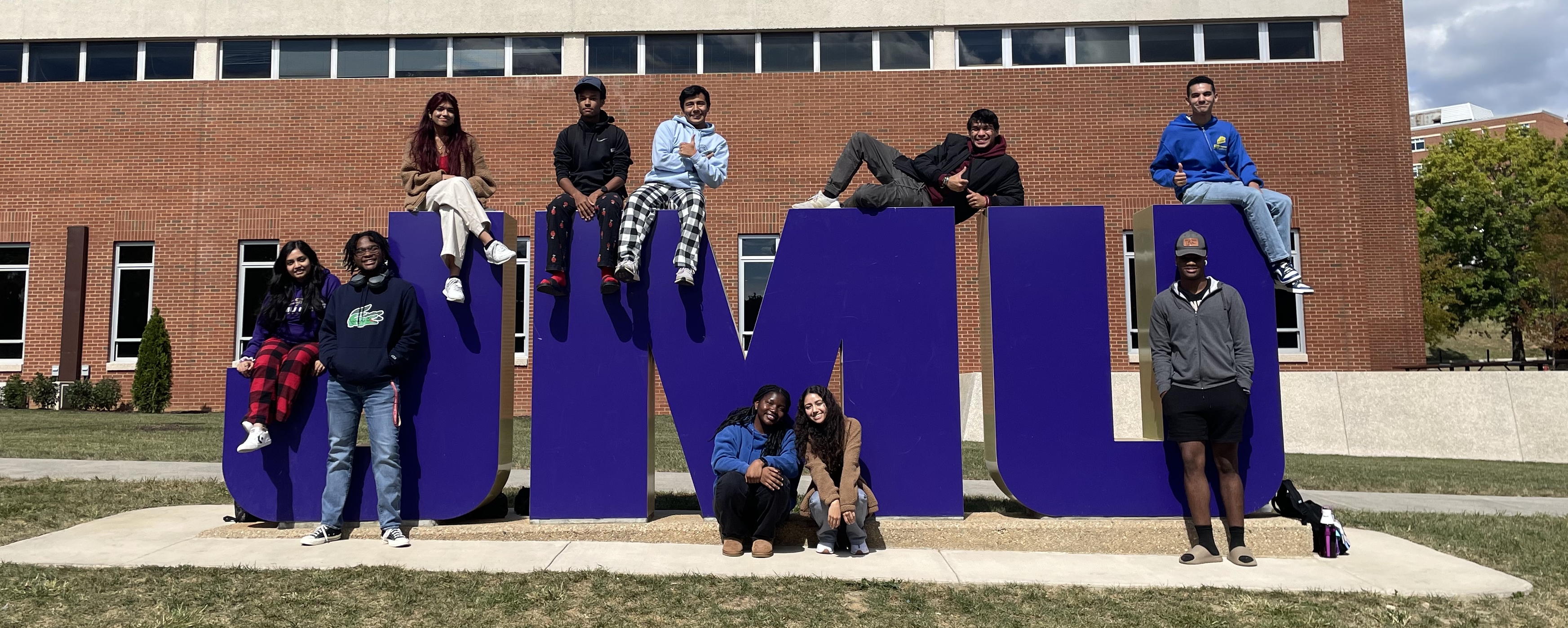
Research project: Using Robotics to mimic flash synchronization of the Photinus Carolinus firefly
Abstract: The purpose of this project is to take the amazing phenomenon of synchronous fireflies into the STEM world. The Photinus Carolinus firefly is a type of beetle insect which emits biolumiscent flashes of light as part of their assortive mating. What makes this species remarkable is their documented synchronized flash pattern. We investigate the synchronizations of fireflies and speak about the biology, the environmental influences, and several mathematical models believed to help explain and describe this behavior. Using biological knowledge, 3D printing and design, electrical engineering, computer science, math, and statistics we combined ESP32 microcontrollers, LEDs, and sensors to create a swarm of robotic Photinus Carolinus, to demonstrate that this swarm can create patterns similar to the ones observed in nature.
Dhanshree Atre - Haynes Scholar in Computer Science
Gerardo Cruz Mejia - Haynes Scholar in Engineering
Rafael Dietsch - Haynes Scholar in Computer Science
Izzy Dionne - Haynes Scholar in Engineering
Treya Gunn - Haynes Scholar in Biology
Bryce Jennings - Haynes Scholar in Exploratory Studies
Janefer Lobo Funez - Haynes Scholar in Biology
Ellona Macmillan - Haynes Scholar in Psychology
Carolina Moscote Rodriguez - Haynes Scholar in Biology
Juan Resendiz-Perez - Haynes Scholar in Engineering
Sahara Sania - Haynes Scholar in Biology
Micari Turner - Haynes Scholar in Kinesiology
Trey Vaughn - Haynes Scholar in Engineering
Meet the 2021-22 Haynes Scholars
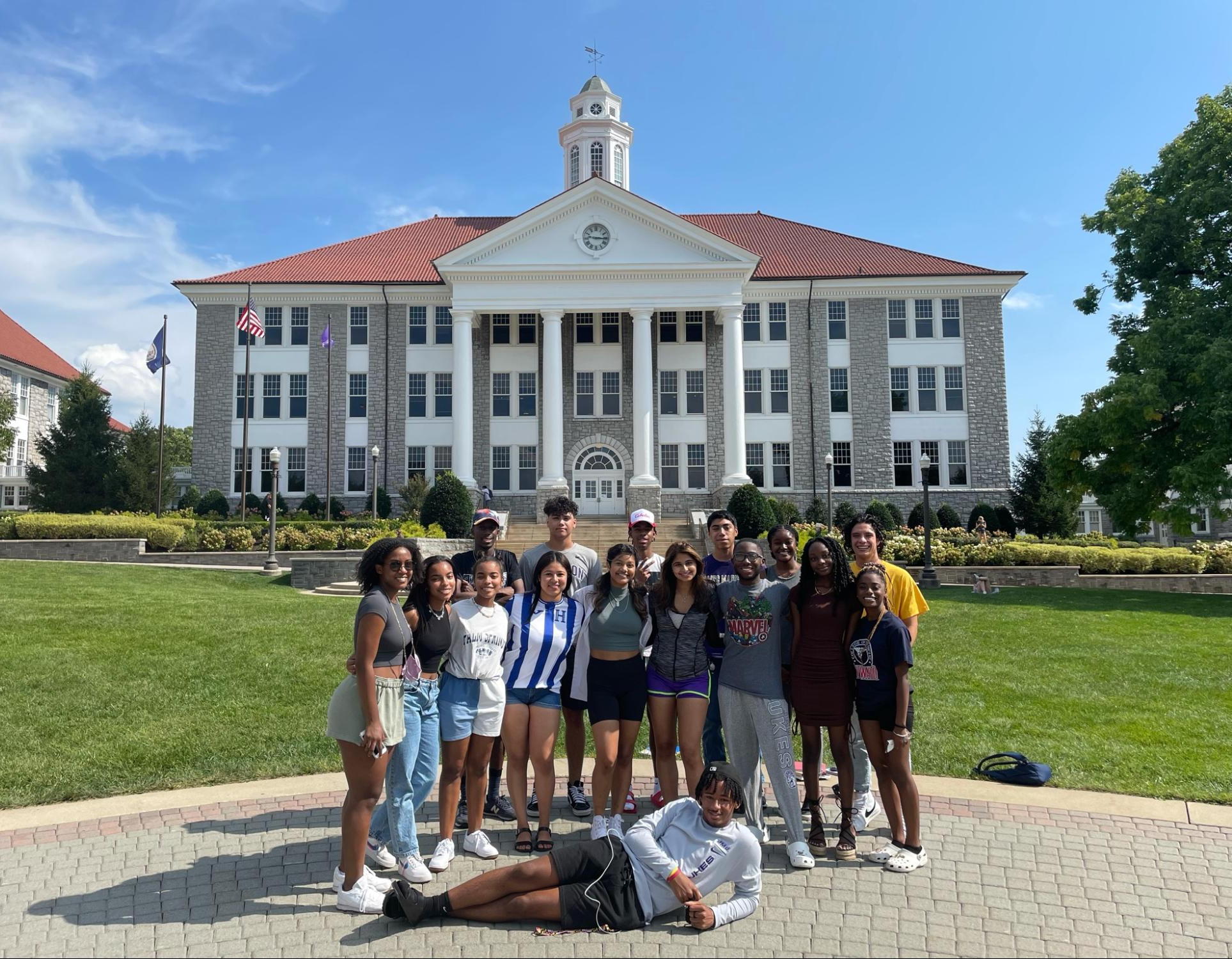
Research project: Minimal conformations of stick knots
Abstract: A mathematical knot is an embedding of a closed path in three-dimensional space. If the knot is comprised of straight line segments that meet at a finite number of vertices, we say it is a “stick knot.” Stick knots have applications in biological systems such as the configuration and folding of DNA and proteins, the structure of molecules, and the creation of synthetic chemicals and cancer therapies. In this project we studied the mathematical theory behind the construction of and minimum configurations for stick knots, and successfully produced physical 3D models of minimal stick knots by utilizing coding programs, CAD software, and 3D printers. Our mathematical methods include identifying vertex coordinates for minimal stick knot conformations, and using crossing matrices, knot determinants, and Alexander polynomials to identify the correct knot type for each model. We used mathematical and CAD software including KnotPlot, OpenSCAD, and Cura to construct digital knot models, convert them into 3D-printable files, and then produce actual physical 3D models, which we will have for examination during our presentation. Our main results include both the establishment of construction processes for these models and the production of the models themselves, which are the first known physical models of these important mathematical constructions. These models will be shared and freely available for others to 3D print, so that researchers in science and mathematics can have tangible references for stick knot conformations, leading to a better understanding of these mathematical objects, as well as new conjectures and results.
Alexis Alston - Haynes Scholar in Biology
Bryce Anderson - Haynes Scholar in Engineering
Brevin Bugauisan - Haynes Scholar in Biology
Mikiela Campbell - Haynes Scholar in Computer Science
Eliana Diaz-Aceituno - Haynes Scholar in Chemistry
Marvin Fuentes - Haynes Scholar in Engineering
Amaya Hamilton - Haynes Scholar in Biology
Jada Marie Herrera - Haynes Scholar in Computer Science
James Love - Haynes Scholar in Physics
Jordan Milton - Haynes Scholar in Engineering
Valeria Moscote Rodriguez - Haynes Scholar in Biology
Derrell Plair - Haynes Scholar in Biology
Serena Sharma - Haynes Scholar in Biology
Jayme Stevenson - Haynes Scholar in Biology
Chayse Tucker - Haynes Scholar in Computer Science
Jasmine White - Haynes Scholar in Engineering
Jada White - Haynes Scholar in Engineering
Meet the 2020 Haynes Program Student Advisors
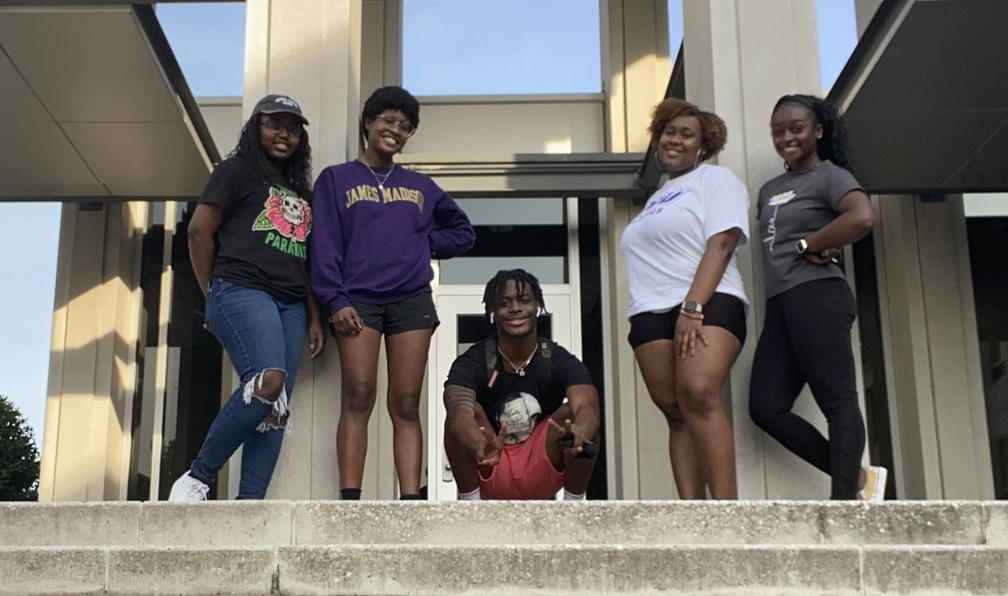
Over a dozen JMU students in CSM and CISE majors guided the development and goals of the Haynes Scholars program, and worked with the incoming students as mentors, advisors, and tutors.
Fareeha Ahmed - Biology/Pre-Med, Honors
Madison Bennett - Biology/Pre-Med
Kianna Butts - Biology/Pre-Dental, Honors
Luis Estrada - Engineering
Mya Fife - Special Education
Ajah Harris - Physics & Astronomy, Mathematics, Honors
Shreyas Khera - Mathematics, Secondary Education
Pierre Mbala - Engineering, AAAD Studies, Mathematics, Honors
Julia Merrell - Biology/Neuroscience, Honors
Gabriella Newsome - Biophysical Chemistry/Pre-Med
Deaquan Nichols - Biophysical Chemistry/Pre-Med, Mathematics, Honors
Umayr Obaid - Biotechnology
Maxine Payton - Computer Science, Mathematics
Yuliiza Salazar - Biotechnology
Micah Swaby - Biology/Pre-Medicine
Tesha Yeboah - Computer Science, Mathematics
Steering Committee
Program Directors
Elizabeth Arnold, Mathematics & Statistics
Laura Taalman, Mathematics & Statistics
Faculty Research Mentors
2024-25: Laura Tipton and Alex Capaldi, Mathematics & Statistics
2023-24: Hala Nelson and John Webb, Mathematics & Statistics
2022-23: Minah Oh and Roger Thelwell, Mathematics & Statistics
2021-22: Elizabeth Arnold and Laura Taalman, Mathematics & Statistics
Department Liaisons
Celes Woodruff, Mathematics & Statistics
Kyle Gipson, Engineering
Tehani Finch, Physics & Astronomy
Shane McGary, Geology
Laura Tipton, Biology
Oleksandr Kokhan, Chemistry
Nathan Sprague, Computer Science
Elias Semaan, Quantitative Finance
College Liaisons
Samantha Prins, College of Science & Mathematics
Bob Kolvoord, College of Integrated Science and Engineering
University Liaisons
Tripp Purks, JMU Office of Residence Life
Courtney Hope, Student Success Coordinator and Inclusive Excellence Director
David Owusu-Ansah, JMU Faculty Access and Inclusion
Art Dean, Associate Vice President for Diversity, Equity, and Inclusion
Statistical Consulting
Beth Cochran, Mathematics & Statistics
Ben Ward, Mathematics & Statistics
Sponsors and Grants
The Haynes Scholars program is supported by a Tensor SUMMA grant from the Mathematical Association of America:

The initial years of the program were also supported by funding from the following internal JMU program development grants:
Provost's Faculty Curriculum Development Grant, 2021
Faculty Senate Mini-Grant, 2021
Primary support for the academic aspects of the program is provided by:
JMU Department of Mathematics and Statistics
JMU College of Science and Mathematics
We are also grateful for the program support provided by many other offices and resources at JMU:
